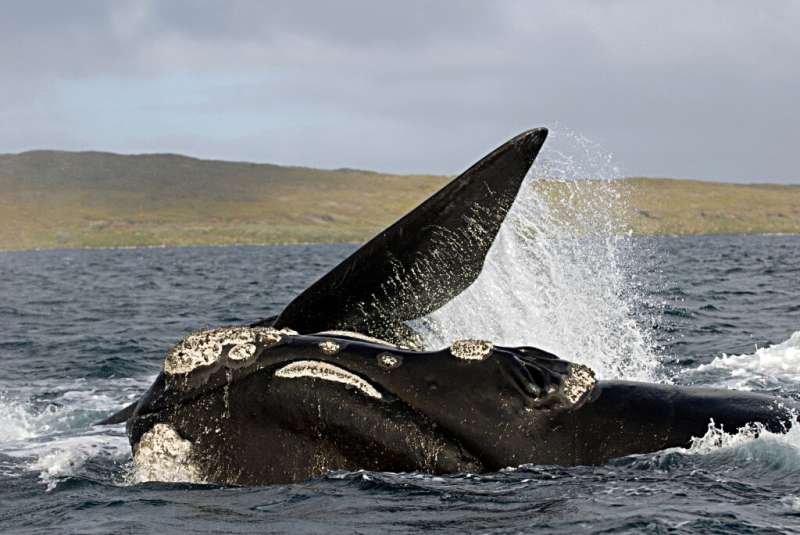Animal culture should be included in conservation efforts

Researchers say conservation of some of the world's most endangered species needs to take cultural knowledge of the animals into account when working out how best to protect them.
An international group of scientists, including Dr. Emma Carroll from the University of Auckland, have come up with a 'roadmap' to help conservationists make the best decisions when implementing measures to help save them.
Like humans, species such as elephants, chimpanzees and whales learn from each other. For example, meerkat pups learn how to hunt scorpions by copying adults, and whales learn migratory routes from their mothers. Over time, learned behavior can create differences between groups of animals which shape how they forage, migrate and communicate.
Beyond conserving genetic diversity, the authors of the paper published in Proceedings of the Royal Society B argue that understanding these socially learned behavioral differences between groups can guide decisions on how to define units (groups) to protect. It can also inform practical conservation measures, such as teaching anti-predator behaviors, or even seeding migratory routes for animals undergoing reintroduction to the wild.
"By conserving the ability of populations and groups of animals to socially learn, we help ensure they have the ability to rapidly learn how to exploit new food or habitat resources," says Dr. Carroll. "Conversely, some species are culturally 'conservative' which may mean they focus on key resources, like particular types of food that need to be conserved."
For example, socially learned migration routes by beluga whales may be important to prevent entrapment in sea ice; understanding how crop-raiding behavior in elephants is spread across social groups can assist in the management of these behaviors; and social learning may even provide opportunities for rapid assessment, for example in New Caledonian crows, where vocal dialects may provide 'markers' for rapidly mapping variation in tool-assisted foraging behavior.
"Conservation practice has long been guided by genetics and ecology that assess how unique or connected different groups of animals are" says lead author Philippa Brakes of Whale and Dolphin Conservation. "We show that social learning and animal culture is another important facet of biology that can guide effective conservation strategies."
More information: Philippa Brakes et al. A deepening understanding of animal culture suggests lessons for conservation, Proceedings of the Royal Society B: Biological Sciences (2021). DOI: 10.1098/rspb.2020.2718
Journal information: Proceedings of the Royal Society B
Provided by University of Auckland



















